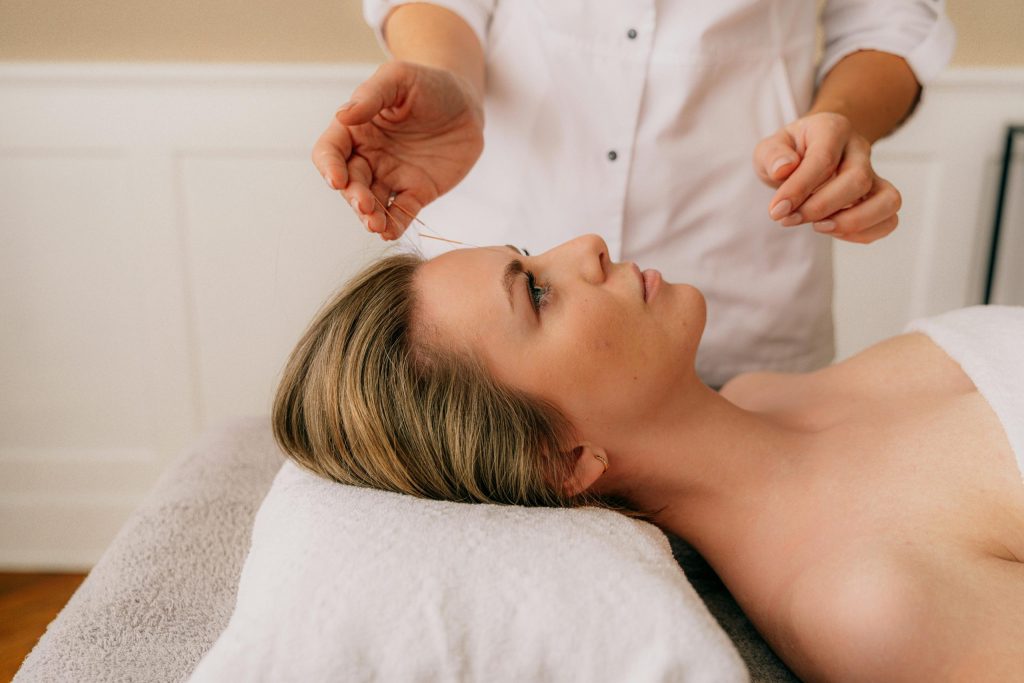In an era marked by escalating rates of anxiety, depression, and stress-related disorders, people are increasingly turning toward holistic approaches that address not only symptoms but also root causes. Among these ancient yet resurgent practices is acupuncture—a foundational component of Traditional Chinese Medicine (TCM) that has transcended its cultural origins to become a globally recognized modality for emotional well-being. As Western medicine continues to integrate complementary treatments, acupuncture stands out as a particularly effective bridge between time-honored healing and modern emotional needs.
The Foundations of Acupuncture and Emotional Health
Acupuncture is based on the concept of Qi (pronounced “chee”)—the vital energy that flows through meridians or channels in the body. According to TCM, emotional disturbances are often the result of blocked or imbalanced Qi. By inserting fine, sterile needles into specific points along these meridians, acupuncture seeks to restore the harmonious flow of energy, thereby relieving both physical and emotional ailments.
While this framework may differ from Western biomedical models, the physiological effects of acupuncture are becoming increasingly understood through modern neuroscience. Stimulation of acupuncture points has been shown to activate the central nervous system, regulate neurotransmitters like serotonin and dopamine, and modulate the body’s stress response via the hypothalamic-pituitary-adrenal (HPA) axis.
Acupuncture and the Stress Response
Stress is a primary driver of many chronic diseases, and its emotional toll—manifesting as irritability, insomnia, anxiety, or burnout—is often downplayed. Acupuncture offers a gentle yet powerful tool for interrupting the cycle of chronic stress. By targeting points such as Shenmen (HT7), Yintang, or Pericardium 6 (Neiguan), acupuncturists help calm the nervous system and facilitate relaxation.
Clinical studies have demonstrated that acupuncture significantly lowers cortisol levels, reduces sympathetic nervous system overactivity, and enhances parasympathetic tone. This rebalancing not only improves mood but also supports restorative sleep, digestion, and cardiovascular function—systems that are intimately tied to our emotional state.
Anxiety and Acupuncture: Rewiring the Mind-Body Loop
Anxiety disorders are among the most common emotional disturbances globally, and their treatment often involves pharmaceuticals with side effects or dependency risks. Acupuncture offers a non-pharmacological alternative that addresses both physical sensations of anxiety—such as palpitations and tension—and the emotional components like worry and hypervigilance.
By stimulating acupuncture points associated with the heart, spleen, and kidney meridians (each traditionally linked to specific emotions), practitioners aim to calm overactive mental states. Functional MRI studies have shown that acupuncture can deactivate the amygdala—the brain’s fear center—and improve connectivity within the prefrontal cortex, which governs rational decision-making and emotional regulation.
Treating Depression with Acupuncture
Depression is not merely a chemical imbalance but often a multifaceted experience involving stagnation—of energy, of thought, and of action. In TCM, this state might be interpreted as “Liver Qi Stagnation” or “Spleen Qi Deficiency,” both of which correlate with fatigue, sadness, and lack of motivation. Acupuncture can be tailored to invigorate stagnant energy, boost mood, and reestablish emotional equilibrium.
Clinical trials show that acupuncture is at least as effective as conventional antidepressants for mild to moderate depression—and with fewer side effects. It can also serve as a valuable adjunct for patients already on medication, enhancing therapeutic effects and reducing symptoms of withdrawal or emotional blunting.
Trauma and the Role of Somatic Healing
One of acupuncture’s most promising areas lies in trauma recovery. Traumatic experiences often lodge themselves not just in memory but in the body—in the form of tight muscles, hypervigilant nerves, and disrupted sleep cycles. Unlike talk therapy, which operates primarily on the cognitive level, acupuncture engages the somatic body, allowing trauma to be released from cellular memory.
Trauma-sensitive acupuncture protocols, such as those used by Acupuncturists Without Borders or in veterans’ hospitals, focus on grounding, safety, and nervous system recalibration. The “5-needle protocol,” commonly used in auricular acupuncture (ear acupuncture), has been applied in disaster zones and community clinics to address acute stress and PTSD, providing immediate and non-verbal relief.
Insomnia, Burnout, and Emotional Drain
Insomnia is both a symptom and a cause of emotional imbalance. TCM views sleep disturbances through several lenses—such as excess Yang energy, Heart and Kidney disharmony, or overthinking due to Spleen Qi deficiency. Acupuncture helps reestablish circadian rhythms by calming the mind and nourishing Yin energy, which is essential for rest and recovery.
Burnout, often characterized by emotional exhaustion, cognitive dullness, and detachment, is another growing epidemic. While Western approaches focus on reducing workload or increasing motivation, acupuncture targets the root exhaustion in the adrenal and nervous systems. Regular treatment can replenish depleted reserves and restore a sense of vitality and clarity.
Women’s Emotional Health and Hormonal Balance
Women often experience emotional fluctuations tied to their hormonal cycles—whether due to PMS, pregnancy, postpartum challenges, or menopause. Acupuncture offers a safe and effective way to harmonize these shifts, promoting emotional stability through endocrine regulation.
Points that influence the Liver and Spleen channels are frequently used to treat irritability, sadness, or anxiety associated with hormonal imbalance. Studies show that acupuncture can normalize estrogen and progesterone levels, making it a valuable adjunct in treating polycystic ovarian syndrome (PCOS), perimenopausal mood swings, or postnatal depression.

Children and Adolescents: A Gentle Emotional Guide
Children and teenagers also face emotional challenges, often exacerbated by academic stress, peer pressure, or digital overload. Pediatric acupuncture—often involving non-invasive techniques like acupressure, laser stimulation, or micro-needles—can help manage anxiety, sleep issues, attention difficulties, and emotional reactivity.
Parents are often surprised by how well children respond to acupuncture. Unlike adults who may resist letting go of tension, children’s systems are typically more responsive, allowing for faster emotional and physiological shifts.
Integrating Acupuncture into Modern Mental Health Care
Mental health professionals are increasingly referring patients to acupuncturists, recognizing that emotional healing benefits from multimodal approaches. Collaborative care models now exist in hospitals, integrative health centers, and even university counseling centers, where acupuncture is used alongside psychotherapy, meditation, and nutrition.
Acupuncture is also a powerful entry point for individuals who are not ready or willing to engage in traditional talk therapy. The non-verbal, body-centered nature of acupuncture allows them to begin the healing process from the inside out, often catalyzing deeper emotional awareness and opening the door to further psychological support.
Accessibility and Demystification
As acupuncture becomes more mainstream, accessibility is expanding. Community acupuncture clinics offer sliding-scale fees, and many insurance plans now cover sessions for mental health purposes. The growing body of research continues to demystify the practice, translating its benefits into terms acceptable to evidence-based medicine without stripping away its traditional roots.
Educational efforts are also underway to inform the public about what to expect during treatment, address concerns about needles, and highlight how acupuncture can complement—not replace—existing medical care.
Daily Practices Inspired by Acupuncture
While clinical acupuncture should be performed by licensed professionals, individuals can incorporate acupressure, breathing techniques, and Qi Gong—related TCM practices—into their daily routines. Stimulating points like Yintang (between the eyebrows), Pericardium 6 (inner forearm), or Kidney 1 (sole of the foot) through gentle massage can calm the mind, ease nausea, and promote grounding.
Mindful breathing and intention-setting during self-care rituals like bathing or stretching can further integrate the acupuncture philosophy into daily emotional hygiene. These practices help create a body-mind awareness that sustains well-being between formal sessions.
Conclusion: A Timeless Tool for Emotional Renewal
Acupuncture bridges the ancient and the contemporary, offering a nuanced and deeply effective path to emotional wellness. It transcends language and culture, working not just on chemical imbalances or neural networks but on the subtle energy systems that shape our moods, thoughts, and stress responses. In a world that often treats emotional pain as invisible or secondary, acupuncture invites us to listen to the body as a storyteller—and to heal from the inside out.
As more individuals seek holistic and empowering approaches to emotional health, acupuncture’s gentle wisdom and growing scientific validation position it as a central pillar of 21st-century wellness strategies. It does not promise escape from life’s pressures—but it offers a profound recalibration, reminding us that within the stillness of a needle’s touch lies the capacity to restore balance, resilience, and inner peace.







































